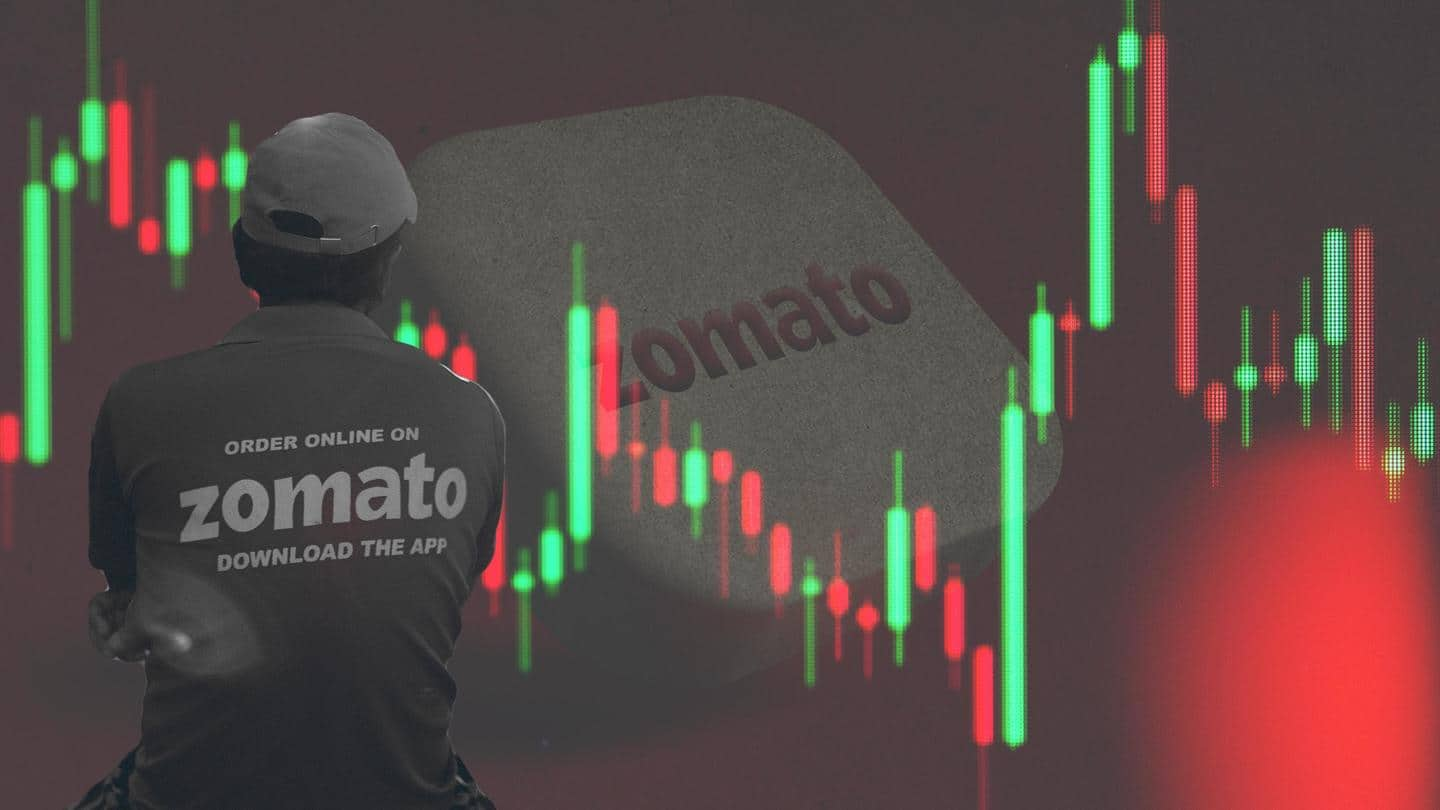
#NewsBytesExplainer: Why are investors like Uber, Tiger Global quitting Zomato
What's the story
Zomato has been going through a series of crests and troughs over the last few weeks.
The Deepinder Goyal-led venture saw two of its major investors, Uber and Tiger Global, unloading their shares in the company. Surprisingly, its performance in the market was not affected by this.
So, let's take a look at Zomato's recent highs and lows and what caused them.
Uber's exit
Uber made nearly Rs. 3,100 crore from selling Zomato shares
Uber was the first major shareholder of Zomato to cash out. The ride-hailing giant had received a 7.78% stake in the company after it sold its food delivery arm to Zomato.
It sold the shares in entirety through a block deal. The American company made Rs. 3,088 crore from a total of 612 million shares.
There were sold at Rs. 50.44 apiece.
Reason
Why did Uber leave Zomato?
The market has been closely watching Zomato ever since the end of the one year lock-in period of investors who had a stake in the company before its initial public offering (IPO).
However, Uber's share dump came right after Zomato posted a better-than-expected quarterly result. The fact that the company is yet to make any profit may have played a part in Uber's decision.
Tiger's exit
Tiger Global Management shed 2.34% stake in Zomato
Following Uber, American investment firm Tiger Global Management sold its 2.34% stake or 18.44 crore shares in Zomato.
Prior to the end of lock-in, the hedge fund firm held 5.11% in the food delivery aggregator.
The company had first invested in Zomato in September 2020 and then led another round of investment in February 2021. Its total stake has now reduced to 2.77%.
Tech crisis
The global tech crisis affected Tiger Global Management
Like Uber, Tiger Global's reasons for reducing its stakes in Zomato also include the delivery giant's inability to make profits. Apart from that, the hedge fund's stock dumping follows a pattern.
The New York-based firm's portfolio has been shrinking consistently this year due to correction in global tech valuations. Amid the crisis, the hedge fund ended the first half of the year down 50%.
Information
Moore Strategic Ventures exited Zomato at a loss
Before Uber and Tiger, Moore Strategic Ventures had exited Zomato in July. The venture capital firm sold its entire holding of 4.25 core shares at a price of Rs. 44/share. As such, the company posted a loss of Rs. 4 core on the investment.
Doubts
Zomato's acquisition of Blinkit is looked at with skepticism
One of the major reasons for the decline in investor confidence in Zomato could be the company's acquisition of Blinkit. It acquired the quick-commerce company for $567 million.
Blinkit's reputation as a loss-making company has made many question the deal. The deal will also lengthen Zomato's path to a profit-making organization.
The company's investors are watching how the deal turns out.
Riding high
Interestingly, zomato's shares have been on a high this week
One would imagine two big guns exiting the company would make it worse for Zomato. However, that hasn't been the case.
Zomato's shares have witnessed plenty of movement this week. The company ended Thursday's trading session at Rs. 57.85/share. In the last five sessions, the stock has moved up by 25%.
The shares even touched Rs. 58.15 apiece, the best since its debut session.
Quarterly numbers
The company's consolidated revenue rose by 68% year-over-year
Earlier this week, Zomato posted its quarterly results. The company's performance in the first quarter of FY23 was better than what most expected.
The net loss was Rs. 186 crore, compared to Rs. 356 crore year-over-year. At the same time, its consolidated revenue rose by 68% to Rs. 1,414 crore.
The revue jump was driven by a 10% jump in its gross order value.
New path
Zomato to become 'Eternal'
Zomato has decided to internally restructure itself. According to Deepinder Goyal, the CEO, the company plans to rebrand itself as 'Eternal.'
Eternal will be the parent organization of Zomato, Blinkit, Hyperpure, and Feeding India, among others. Instead of having a single CEO, multiple CEOs are set to run the company's businesses.
This move is aimed at diversifying the company's business model.